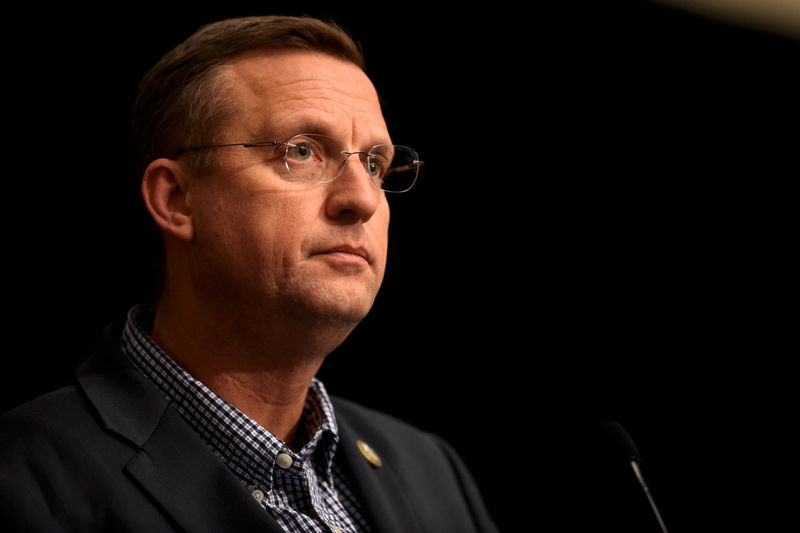By Susan Cornwell and David Morgan
PHILADELPHIA (Reuters) - U.S. Republican leaders on Wednesday laid out plans for repealing Obamacare by spring, followed by funding the building of a border wall and reforming the tax code by late summer, as lawmakers launched an effort to unify behind a legislative strategy.
But Republicans gathered in Philadelphia for a three-day retreat showed little fervor for President Donald Trump's calls to investigate what he believes was large-scale voter fraud in the Nov. 8 election.
Trump on Wednesday said he would seek such a probe, although there is overwhelming consensus among state officials, election experts and politicians that such fraud is rare in the United States.
At the closed-door retreat, House of Representatives Speaker Paul Ryan laid out a plan of legislative action including repeal of the Affordable Care Act, former President Barack Obama's signature health law known as Obamacare, by March or April, followed by appropriations for a border wall with Mexico and overhauling the tax code by August, one Republican source said.
Republicans have majorities in both the House and Senate.
A senior House Republican, Representative Diane Black, said key House committees will take votes within the next two weeks on draft legislation to repeal the Affordable Care Act.
“Then we expect that probably toward the latter part of February, or the first part of March, that we should be ready to go with the final reconciliation bill” to repeal Obamacare, she told reporters.
Representative Chris Collins, a New York Republican who was an early Trump backer, said on MSNBC that lawmakers were told at the retreat that they will write legislation "in the next two months" to help pay for the border wall that Trump signed directives to build.
On the issue of tax reform, Ryan, speaking to MSNBC, said: “Our goal is to get this done by the end of summer, which is for Congress quite fast.”
While there is Republican enthusiasm about the idea of swift action against Obamacare and on taxes, the challenge for Trump and congressional Republicans will be getting lawmakers to coalesce around specific plans.
"THE ELECTION'S OVER WITH"
Trump won in November because he secured the most votes in the state-by-state Electoral College system, but he lost the popular vote to Democrat Hillary Clinton by nearly 3 million ballots. Irked by that large figure, he has blamed voter fraud, without citing evidence, and called for an investigation.
Senator John Thune of South Dakota, chair of the Senate Republican Conference, saw little need for a probe.
"I’ve not seen any evidence to that effect, but if they want to take that issue up, that’s a decision obviously that he can make," Thune told reporters.
"All I can say is what I’ve said before, and that is that we’ve moved on, the election’s over with, we had a decisive winner in our constitutional system, and we’re ready to go to work," he said.
U.S. Representative Cathy McMorris Rodgers of Washington state, chair of the Republican conference in the House of Representatives, took a wait-and-see attitude toward Trump's demand for a probe.
“It’s very important that people have confidence in the elections and the outcome of those elections. And I’ll wait until I see more of what he’s proposing before I comment on what his action is going to be," she said.
Trump and Vice President Mike Pence are expected to meet with the lawmakers on Thursday. British Prime Minister Theresa May will also join lawmakers in Philadelphia on Thursday and is expected to discuss plans for a possible U.S.-U.K. trade deal.
Congress is under pressure from Trump to act quickly. But some congressional Republicans have expressed concern about starting a repeal without clarity about how to replace a law that has expanded health insurance coverage to millions.
The retreat will provide an opportunity for Trump and his staff to build a rapport with lawmakers, many of whom have had little contact with the president, a New York businessman who had no experience in government before taking office.
